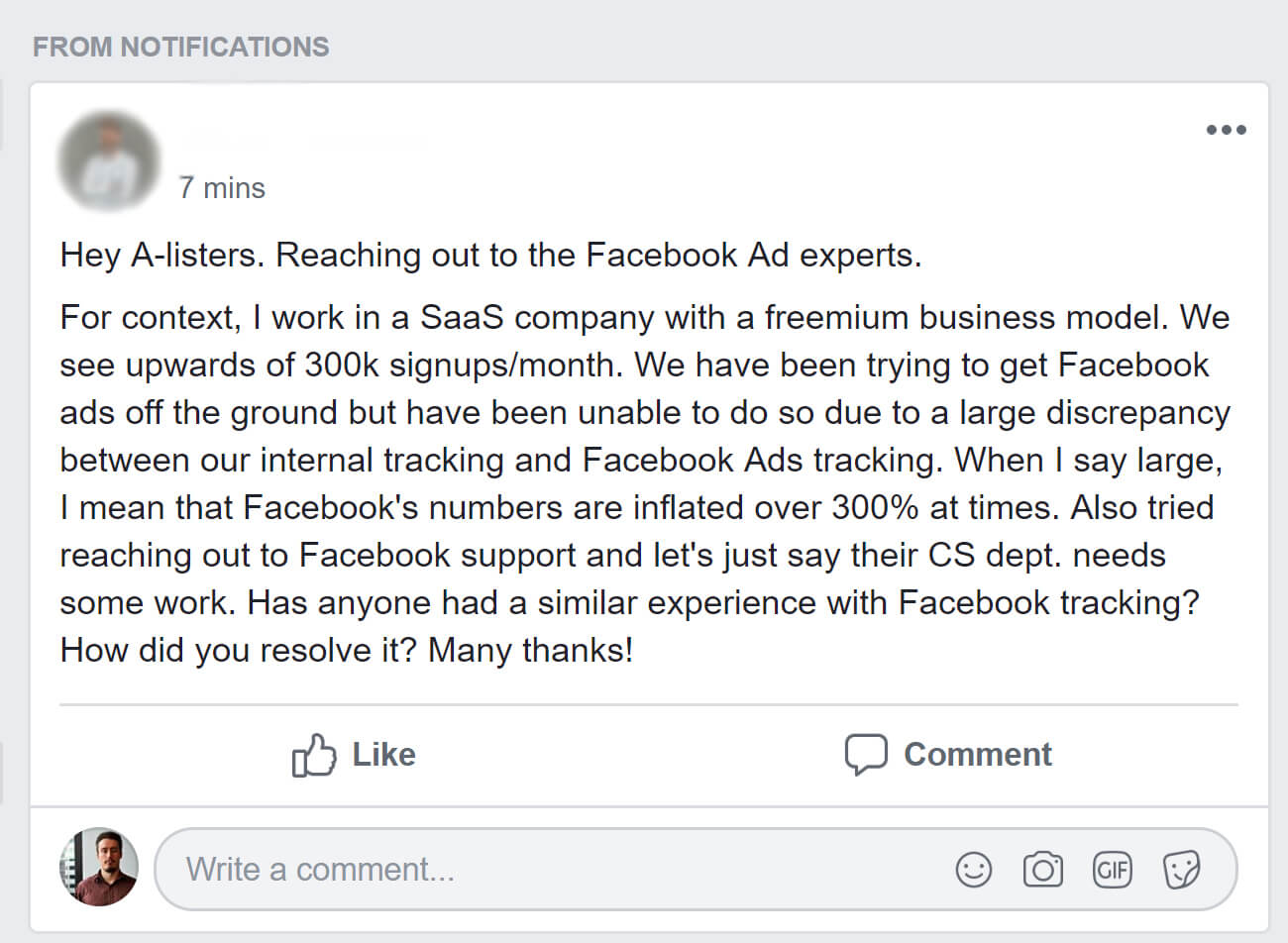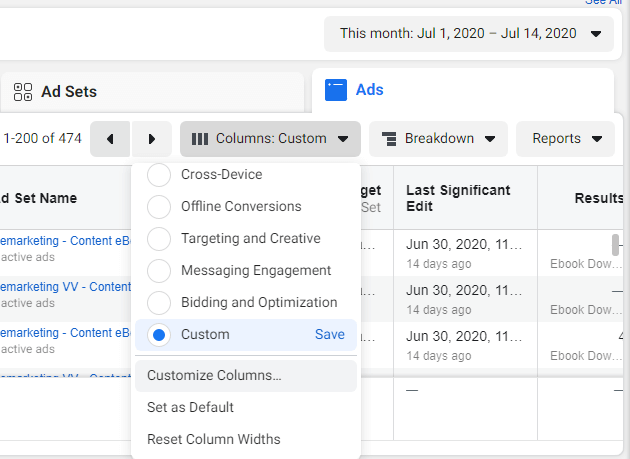
The Breakdown: Data Discrepancies Between Facebook Ads & Google Analytics Explained
Today, we’re covering a typical Facebook ads versus Google Analytics discrepancy tracking issue.
A post in a Facebook group inspired this article. A software-as-a-service company gets 300,000 sign-ups a month, but they’ve had problems getting Facebook ads off the ground. They see a large discrepancy between their internal tracking and Facebook’s tracking. Facebook’s numbers appear inflated by over 300%.

Our resident Facebook ads expert Danny Lopez says that the first step is to do an event audit. Look at the attribution window (the number of days between when a prospect clicked your ad and when they converted), and see how many conversions are view-through conversions (converted later) versus click-through conversions (converted immediately).
As a refresher, view-through conversions are conversions when a user sees and clicks the ad but doesn’t convert. And later, when they visit your site, that’s when they convert.
Our Digital Marketing Strategist Casey Hawkins agrees and believes it’s likely a result of Facebook reporting view-through conversions as opposed to last-touch conversions, which is how an internal tracking tool like Google Analytics (GA) will track conversions. Usually, the discrepancy between Facebook clicks and Google Analytics comes from that tracking difference.
Casey says, “The Google Analytics tracking may show five Facebook ad conversions because five users clicked through the ad and signed up directly. However, Facebook may report 15 conversions because 15 users saw the ad, and then some went to the website and converted within their conversion window.”
So how do you solve this issue? If you’ve done the event audit and feel confident in your tracking setup, test this in Facebook. In Ads Manager, you can customize columns and then edit the attribution window. Facebook’s default attribution window for view-through is 1 day, and it’s 28 days for click-through conversions. Ensure the view-through range is 1 day.

It’ll never be a one-to-one comparison between the platforms. WebMechanix has often found up to a 50%+ discrepancy between a Facebook pixel’s click-through and an analytics tool’s reporting. Ben Williams, Director of Paid Search, says, “Click-through is not necessarily ‘clicked through and then converted in the same session.’ Click-through is literally ‘clicked an ad, and at some time within this window, did the thing, same-session or not.’”
If that user clicked a Facebook ad and didn’t convert in that session but went to a search engine that led back to your site later, Facebook will take credit for that, but Google Analytics will give credit to search instead.
For these reasons, our Senior Social Media Strategist Charlee Boone likes to compare the month’s overall conversions from any source to what Facebook reports to see if it fits within a reasonable range.
Also, Charlee says if campaigns have any overlap in audiences, Facebook double counts conversions. So when Facebook shows Jane Doe an ad from campaigns A and campaign B and she converts, it will count as a conversion for both campaigns.
Ben doesn’t believe any reporting style is wrong. Yes, Facebook should separate view-through from click-through conversions, but you shouldn’t be shocked when you see a Facebook campaign where most of click-through conversions are not last-session and not the credited source in GA.
Perhaps, the only correct solution is to expect a discrepancy and to use GA as a more reliable reporting tool if you prefer the last-click conversion model. In most cases, Facebook ads don’t close the conversion but simply aid in pushing the prospect down the funnel.
For more accurate reporting inside Facebook Ads Manager, set your view to display the separate columns — have “Click Conversions” next to the default column for “Conversions.” LinkedIn Ads does the same thing, so be careful in there too.
Conclusion
In summary, Facebook conversion tracking versus Google Analytics (or any other platform’s) tracking is different based on their default attribution model. Understanding these differences can help you explain these discrepancies to your boss and colleagues. Plus, it’ll help you view the reporting model you prefer with the right platform. Facebook takes credit for view-through conversions that GA doesn’t give credit for.
Further Reading:
About Conversion Count Discrepancies Between Facebook Ads Reporting and Third-Party Reporting Tools
Most newsletters suck...
So while we technically have to call this a daily newsletter so people know what it is, it's anything but.
You won't find any 'industry standards' or 'guru best practices' here - only the real stuff that actually moves the needle.






